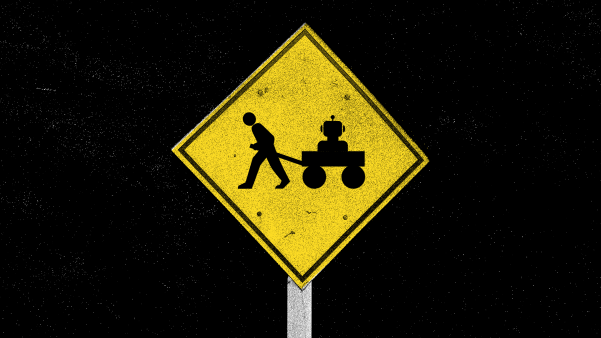With a new NBA season’s first tip-off around the corner, Houston Rockets rookie Royce White is causing a minor sensation with his alternative plan for transportation between games: a bus. Conventionally, NBA teams fly from one city to another, but whenever possible, Houston is making an exception for White.
NBA fans will not be shocked to hear that a young star—even a rookie—would place demands on his team. But White is not simply being difficult or demanding. He’s taking care of his health. White suffers from generalized anxiety disorder, a potentially paralyzing mental disorder that affects about 6.8 million adults in the United States. One symptom of his illness: fear of flying. Because the Rockets want White in top form for their games, they are allowing him to travel on the ground whenever possible.
That exception itself has grabbed at least as much attention as White’s refusal to fly. Some fans wonder why he should receive special treatment. This is why: “The Rockets are being accommodating toward White because they believe he is one of the top big men prospects to come along in some time. So they’re meeting him halfway by letting him get on a bus and drive away.”
White’s college-career accomplishments and his potential have earned him the opportunity to use his gifts productively and take care of himself at the same time. Not everyone is afforded the same latitude. Our society tends to assume people with mental illnesses are by nature unproductive and irrelevant. We’re so wrong.
Recall Edvard Munch’s most famous painting, “The Scream,” and it only makes sense. Read his description of the emotional moment he captured in the painting, and it seems likely: Munch may have been plagued by panic attacks.
In September, The Atlantic featured Munch and 10 other profoundly influential historical figures who may have suffered from mental illness. Abraham Lincoln suffered from severe depression, the article claims. Beethoven from bipolar disorder. And Isaac Newton … well, everything.
While we can’t take these “diagnoses” as official, given their posthumous delivery, they aren’t offered without evidence. And the list of profoundly influential people should give us pause.
All experienced their productive years and brilliant achievements before the most modern developments in brain science, psychotherapy, and pharmaceuticals. And yet, despite their suffering—or perhaps, at least in some cases, because of their suffering—they were able to make outstanding contributions to society.
Do we grant the same potential to people with mental illness in our midst?
Mental illness is plagued by stigma, as almost nothing else in our society is. This despite the fact that most mental illness is now highly treatable, especially with early and consistent intervention. The main opponent of early and consistent intervention? Stigma. This stigma has many faces, one being the assumption that all hope of productive life ends with a diagnosis, a hospital stay, or that first dose of anti-psychotic medication. Sometimes that belief becomes a self-fulfilling prophecy, when people are discouraged from seeking treatment.
Considering the way our culture views, portrays, and reacts to mental illness, who wants to admit to hearing voices? desperately wanting to die? feeling like running screaming from the room, heart pounding, for no apparent reason? Many people will delay or resist treatment for months, years, or lifetimes just to avoid the shame and marginalization attached to a mental health diagnosis.
Based on my experience, this marginalization is alive and well in the Christian community. When was the last time someone in your church acknowledged struggling with mental health as openly as they might discuss a serious physical injury or illness? Does your church help people with mental disorders find their place in its ministry, or subtly (or not so subtly) suggest they need to find community somewhere else? tell people to “go get help” and come back when they’re ready to be normal? What if they can’t find normal?
It’s a terrible thing to do to someone: to suggest that hope for abundant life in Christ goes only so far, and they’re permanently on the other side of the fence.
Many people with mental illness may not seamlessly fit into church life the way most of us experience it on Sunday morning. But let’s be honest—how many of us really do?
My mother, who has schizophrenia, has been on antipsychotics and other medications for decades, has spent time in prison, and once rejected her faith in favor of occult practices while off her medication. Last month, she sent us a package in the mail. Inside were lovely outfits she had custom-made for my daughters. There have been times in my life when I would have said she would never do such a thing again, and she may have agreed. But we were both wrong. Even when I had given up on her, God hadn’t.
As one popular worship song reminds us, Jesus’ love never fails and never gives up on us. The church, then, should be the crowd best known for never giving up on one another. During this Mental Illness Awareness Week, let’s reflect on our attitude toward afflicted people. A change in our attitude, refusing to consider our brothers and sisters outside the reach of hope in Christ, will do much to help people heal and bring their gifts to the body of Christ.
Amy Simpson is editor of Christianity Today’s Gifted for Leadership, a freelance writer, and author of the forthcoming Troubled Minds: Mental Illness and the Church’s Mission (InterVarsity Press). You can find her at www.AmySimpsonOnline.com and on Twitter @aresimpson.








